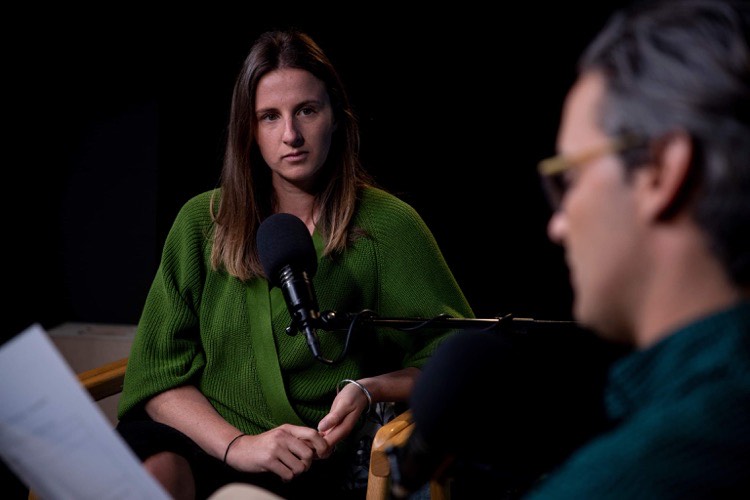The recent rise of AI has been seen by writers as anything from troubling to an extinction-level event. But so were the tools that came before: computers, the internet, even the printing press. And yet those fears were unwarranted. So here’s how to make AI your new best friend and leverage it as a writer.
BY HELLIE HADFIELD
AI: The end of human writers?
Visit any writers’ forum at the moment, and you’ll hear plenty about how AI threatens our livelihoods. Not to mention the lawsuits filed by famous authors.
And I admit, I have felt it, too.
But recently I read a short editorial by Kit Willett, executive editor of poetry journal Tarot. He has been exploring how writers can use AI programs for their work.
He suggests they can be a great resource for all stages of the creative writing process.
At the beginning, you can use them for help with “research and planning” — think playing around with plots, devising themes, and helping with structure.
Along the way, you can take advantage of getting a hand with “revising and editing”. As Willett points out, AI “can edit chapters at a time once you realise that, yes, you really do want it in third person after all that…”
And then, you can even turn to them for “marketing and promotion” once you’re done!
So maybe he’s onto something?
Enter my new writing buddy: ChatGPT
As a fun experiment for this article, I decided to see if ChatGPT could help. I hadn’t used it much before and was surprised by the extent of the content it provided.
I asked ChatGPT which AI tools could be used by writers to optimise their work. Here’s what it gave me:

And while one or two of these teeters on the edge of making content creators redundant, there are certainly a lot of useful resources within these tools if wielded effectively. (And in case, like me, you go searching for Google’s BERT … you essentially use it every time you google something!)
Writers delve in — but approach with caution
As with all tools, there are things to be aware of, too.
Out of curiosity, I asked ChatGPT whether there were risks and pitfalls to using AI for writing, expecting a nonchalant ‘no’. Instead, it gave me quite a comprehensive list. It seems ChatGPT is surprisingly self-aware.
Here are some things to watch out for. (Can you tell which one of these points was written by a robot?)*
1. Security and privacy risks
Last on ChatGPT’s list of cons, this one definitely tops mine. Apart from your personal data, the facts are still pretty murky around how different platforms use your content (as we saw with the lawsuits above). For example, Grammarly states that “by using Grammarly, you’re giving [them] formal permission to … use your writing to improve [their] algorithms.” So proceed with caution.
2. Bias
This boils down to the fact that human creators may pass on their own flaws. Studies have shown that this can create AI that is racist and sexist, among other traits. So be wary.
3. Incorrect information
Just because you asked the internet a question, doesn’t mean you should trust the answer you get, right? It’s the same with AI. Never take a ‘fact’ as a given — always follow up with your own research.
4. Over-reliance on AI
Writers might also become overly dependent on AI tools, neglecting their own skills and intuition. It’s essential to use AI as an aid rather than a replacement for human creativity.
5. Losing the human component
In the future, AI may be able to pass as human. But for now, it’s using patterns and regurgitating what it has been fed. Nothing it ‘creates’ is unique. That’s where your voice as a writer comes in.
READ MORE:
Will AI Kill Copy-editing Jobs? A Q&A with veteran copy-editor Di Smith
6 Vital Apps To Rapidly Transform Your Writing
8 Essential Apps To Boost Your Travel Writing Career
So how can we make the most of AI as writers?
As Willett mentioned, there are plenty of ways for writers to utilise AI.
Think of programs like ChatGPT as a semi-reliable writing buddy. Need inspiration? Have a chat. Bounce around ideas, ask for prompts, and flesh out character traits.
Or, go a step further and generate an image of your character or setting, with programs like DALL-E, Midjourney or Bing Chat. Anything to get the creative juices flowing.
Having issues with structure? Or need help editing? There are AI tools for that. Try Grammarly or Hemingway Editor. (Although, again, be sure you have read the terms and conditions, and are crystal clear on how your work may be used.)
If you’re struggling with research, maybe an AI bot can help point you in the right direction. Never rely on AI as a primary source, though — like an unreliable buddy, it is just as likely to lie to you as tell you the truth!
Finished your piece and not sure how to go about marketing it? Ask away! These days a lot of online platforms have an AI assistant which can take out the grunt work.
You could even ask an AI bot to set reminders for you (just think of Siri, Alexa, etc), so you never again forget to sit down and write! The possibilities are endless.
AI: Your new best frenemy?
Still not convinced that AI isn’t an evil entity? “I’m here to assist and enhance the writing process, not to replace writers,” says ChatGPT.
So there you go, nothing to worry about!
Just kidding.
But love it or hate it, AI isn’t going away any time soon. So before you bunker down in preparation for the rise of the machines, why not try befriending the robots? You never know, you might just find a new best friend.
*Number 4
About the author

Hellie Hadfield has had creative writing published in Tarot, MiNDFOOD, and Wilderdog, and writes content for the Plain Language Awards. She has a BA Hons in international relations and follows her curiosity with a pen in hand. Hellie is a wild-swimming enthusiast who enjoys unexpected adventures with her anxious rescue pup, and is partial to biscuits.













